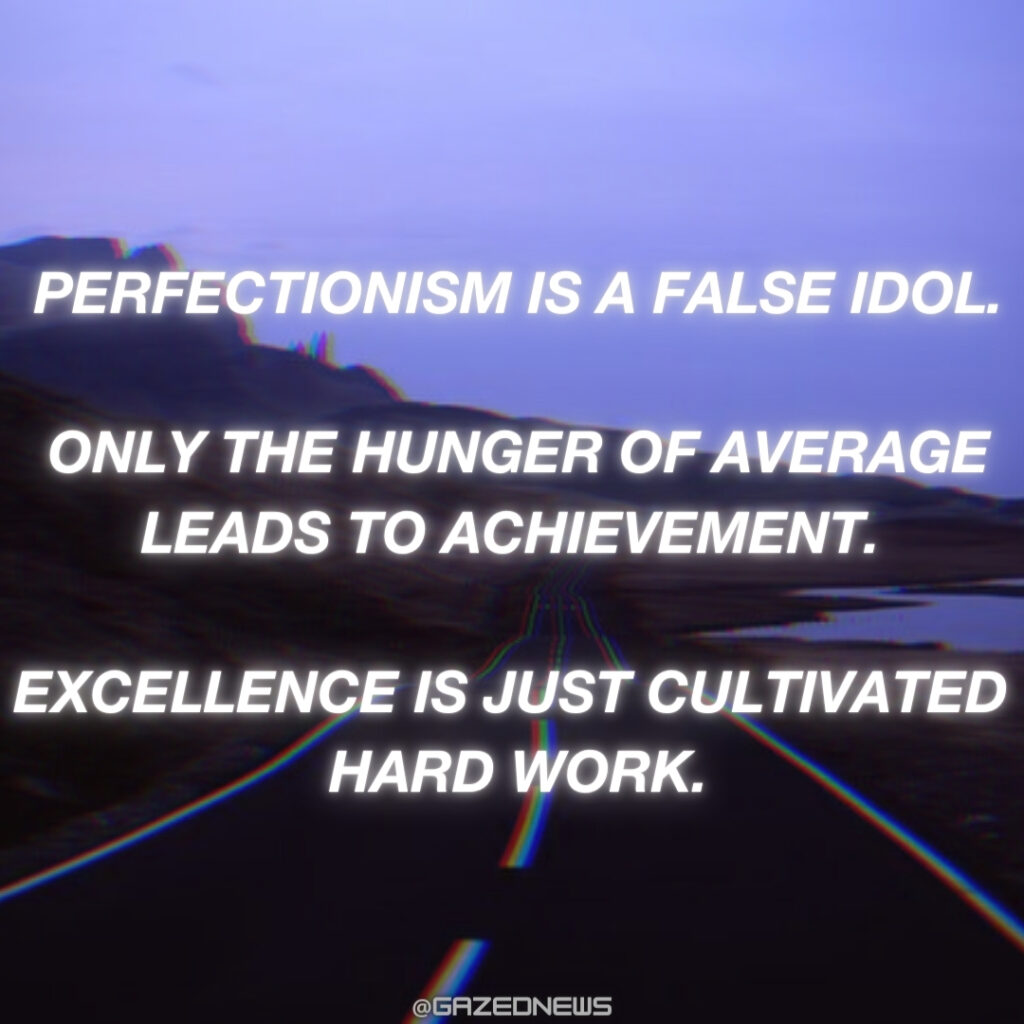No one is born knowing how to solve differential equations. A baby isn’t stupid for not knowing how to walk. Skill, it turns out, is just cultivated practice. Yet much our generation’s collective psyche – which heralds apathy and laziness – would have you believe if you’re not born with it, you should give up before you even start. This mentality feeds into the dangerous notion that intelligence leads to success when in fact, it is hard-work: “Over the years researchers, have discovered that hardworking capacity is a major component of intellectual ability, predicts success in a wide variety of complex activities.” We demand the reward without the struggle. Achievement requires redefining the metrics by which we view success and victimize ourselves to the warm complacent applause of other underachievers.
There was a time when this grand caricature of Generation X was me, I resented math, resented any activity that wouldn’t immediately hearken to my beginner abilities, even resented myself. The truth is, you only like something when you master it. Instead of complaining about how “bad” (lazy) I was at math, I actually started practicing — what a concept! While rushed integration lectures were lost on me as no more than drivel, I became active about my learning. Because if you wan’t something you’ll find a way, if not you’ll find an excuse. There really is no “try.” That way was found, I went on to ace Calculus I, II, III, and statistics classes making even an 108% on a calculus exam with an extra credit question.
Unfortunately, many people are complacently comforted by their ‘small pond,’ while I was motivated by being a ‘small fish in a big pond’ with no option but to swim or sink.
When faced with a demotivating environment the only way to shed your negative haze of a perspective and having the courage to be bad is by giving up the self. We constantly build grandiose narratives about ourselves — be it the undiscovered genius or the dismal failure. This is precisely what sets us up for failure, giving us no room for the learning curve integral to growth in any aspect of life.
Victim complexes make you view every struggle as an injustice, and challenge as a failure. In reality, the world is not out to get you, you are autonomous and your challenges are not uniquely egregious. Failure doesn’t mean the you’re just a sentient bird, it’s part of the unpaved journey towards success. Go forth, and grab life by the horns, embracing the flaws of the present.
Giving up the self involves giving up labels, dogma you paralyze your brain with; giving up all the entitlement and woe-is-me victimization that treats your psyche as a permanent, unchanging thing. Then and only then, are you able to move freely and have the courage to go up the learning curve despite facing initial resistance. No one starts of bench-pressing 200 pounds.
You can’t have the reward of a skill set or achieving great feats, without struggle. There can be no success without failure, no progress without vulnerability. If you want to be good a math, you will face struggle – the successful traverse through the rough terrain paved with struggle, while the rest let hurdles overcome them. Those who sacrifice precious media consumption, achieve higher grades, those who hit the gym despite physical pain run marathons.
Apathy isn’t cool, being lazy by using the “natural ability excuse” isn’t a badge of honor. Funnily enough, the detached, jaded facade of the millennial obfuscates a soul that cares too much. People don’t care about x, because they think they’re “bad” at it so they discount themselves before others do as a self-defense mechanism. Trust me it’s a classic teenage-me move. Its cold roots stem from fear of failure; from a perfectionist mentality.
Perfectionism can only exist to the detriment of growth, it’s the enemy of achievement. It’s another grandiose paralyzing narrative which stops us before or while on the upward trajectory of a steep learning curve. It demands we put off tasks that threaten our high standards in fear of not living up to them, waiting for the right conditions our whole lives. I put off applying for short story contest because the possibility of failure threatens my identity as a writer. It’s only until there’s too much as stake that we spring into action – whether that be through tight time constraints or a feeling of restlessness. The natural solution then is to not build tasks up, to be ok with a bad first draft, to attaching our identities to perfection and being the best. The road to success is paved with failure, and we can only reach the end by not being afraid to be bad initially.
Deficiencies drove those at the apex of every field to achieve — they started looking completely out of place. Therefore ‘talent,’ aside from in the case of child prodigies, really is just cultivated practice. Failure is required for success, no self-made person starts off benching 200 pounds, with a Pulitzer, with their own display at an art gallery, or successful company. The problem is, most of us lack the resilience necessary to persevere — once something doesn’t measure up to our specific high standards, we give up. We’ve got to learn to accept the learning curve, to accept the gap between our personal taste and goals and our beginner abilities. Only practice, failure, then some more practice can bridge the gap.
Attaching resolute superlatives to ephemeral mindsets, full of growth-potential is a dangerous exercise in self-sabotage which prevents us from realizing our dreams. Making the self-ascribed “being bad at math” narrative become a comfortable character trait stopped me initially from making 100’s on tests I’d failed in the past. I was afraid to practice more because I was afraid of struggle, struggle would serve as confirmation that I was an inept impostor. I fell into the fallacious belief that intellectual ability is separate from effort, when it actually relies on effort.
Being bad at something is a choice. No one is born knowing formulas, knowing quantum physics, no one hits the gym the first time and presses 200 pounds to reach a goal. It’s a learning curve that requires effort. Whether one chooses to bask in it or be bad before the good is a choice. Don’t be afraid to be bad at something at first, to fail. Anyone who’s anyone started at the bottom and only climbed to the top by transgressing through the rough terrain, while the equally intelligent, but less resilient individuals didn’t.







Leave a Reply